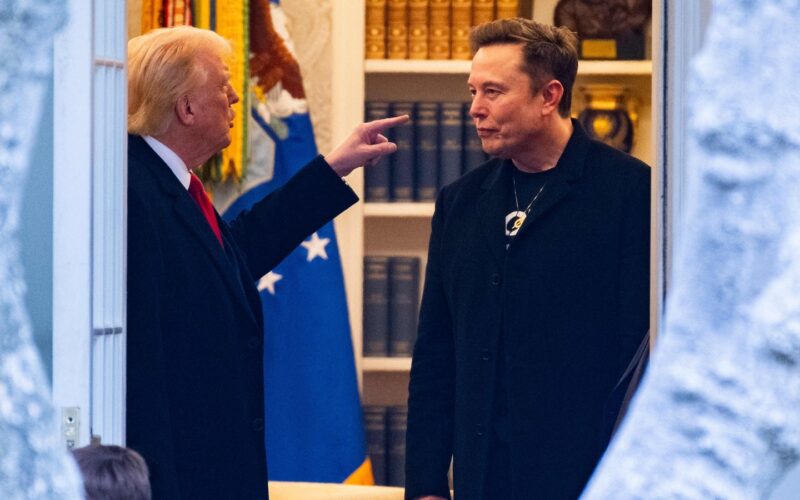Washington DC (National Times): The One Big Beautiful Bill Act (OBBBA), passed by the U.S. House of Representatives on May 22, 2025, with a 215-214-1 vote, is a comprehensive budget reconciliation package designed to overhaul the U.S. tax code, social programs, and federal spending priorities. Championed by President Donald Trump and House Speaker Mike Johnson, the bill extends the 2017 Tax Cuts and Jobs Act (TCJA) and introduces new tax breaks, spending cuts, and policy changes. Key provisions include:
- Tax Reforms: Permanently extends TCJA provisions (e.g., tax brackets, doubled standard deduction), eliminates taxes on tips and overtime pay through 2028, increases the state and local tax (SALT) deduction cap to $40,000, and offers deductions for auto loan interest on U.S.-made cars.
- Spending Cuts: Imposes stricter Medicaid and SNAP eligibility, including work requirements, potentially affecting millions. It also defunds Planned Parenthood and eliminates most clean energy tax credits from the Inflation Reduction Act, except for nuclear credits.
- New Programs: Introduces “Trump Accounts,” a savings program with $1,000 federal seed money for children born between 2025 and 2028, and doubles Health Savings Account (HSA) contribution limits.
- Border and Defense: Allocates $64.6 billion for border security (e.g., border wall, Border Patrol) and $150 billion for defense.
- Other: Repeals the $200 gun silencer tax, funds air traffic control modernization, and raises the debt ceiling by $4 trillion.
The Congressional Budget Office (CBO) estimates the bill will add $2.4 trillion to the deficit over a decade, though proponents claim economic growth and tariffs will offset costs. The bill now faces Senate scrutiny, where it may be revised due to a slim Republican majority.
Why Did It Spark a Feud Between Donald Trump and Elon Musk?
The feud between President Donald Trump and Elon Musk over the OBBBA stems from the bill’s elimination of clean energy tax credits, particularly the $7,500 new electric vehicle (EV) credit and $4,000 used EV credit from the Inflation Reduction Act, which directly impacts Musk’s companies, notably Tesla. Here’s a detailed look at the conflict:
- Musk’s Opposition:
- On May 20, 2025, Musk, a prominent Trump ally and co-chair of the Department of Government Efficiency (DOGE), publicly criticized the OBBBA on X, calling it a “horrible bill” that would harm his businesses. He specifically opposed the removal of EV tax credits, which have bolstered Tesla’s market by making its vehicles more affordable.
- Musk argued that the bill’s cuts to clean energy subsidies, projected to jeopardize 686,000 jobs, would undermine U.S. competitiveness in the global EV market, particularly against Chinese manufacturers. He also expressed concerns about provisions like the $4 trillion debt ceiling increase, labeling them as fiscally reckless.
- Trump’s Response:
- Trump, who has heavily promoted the OBBBA as a cornerstone of his economic agenda, took to Truth Social and X to attack Musk, calling him “Elon” in a sarcastic tone and dismissing his concerns as self-interested. Trump claimed the bill’s tax cuts, such as the auto loan interest deduction for U.S.-made cars, would benefit Tesla indirectly by boosting domestic manufacturing.
- Trump also mocked Musk’s reliance on government subsidies, stating, “Elon wants his handouts, but the American people come first.” He further suggested that Tesla could thrive without EV credits, citing its brand strength and Trump’s broader tariff policies to protect U.S. industries.
- Underlying Tensions:
- The dispute highlights a clash of priorities. Trump’s OBBBA emphasizes traditional Republican goals—tax cuts, deregulation, and fossil fuel support—while Musk, a clean energy advocate, sees the EV credit cuts as a betrayal of innovation and economic progress.
- Musk’s role in DOGE, tasked with cutting federal spending, created expectations of alignment with Trump’s fiscal conservatism. However, his public dissent revealed a rift, as Musk advocated for selective government intervention to support his industries.
- Political analysts suggest personal egos and Musk’s growing influence in Republican circles, including his X platform’s role in shaping public discourse, irritated Trump, who views the OBBBA as a personal legacy project.
- Public and Political Fallout:
- The feud played out publicly on X, with Trump supporters accusing Musk of prioritizing profits over national interests, while Musk’s followers defended his stance on clean energy and fiscal responsibility. Posts on X highlighted Musk’s threat to withhold support for Republican senators who back the bill without revisions.
- The conflict has complicated Senate negotiations, as Musk’s influence could sway moderate Republicans wary of the bill’s deficit impact and clean energy cuts. Some senators, already skeptical of Medicaid cuts and the debt ceiling hike, may align with Musk’s push for amendments.
Current Status
As of June 6, 2025, the OBBBA awaits Senate consideration, with a target enactment date of July 4. Musk has reportedly softened his rhetoric, focusing on lobbying for EV credit restoration, while Trump has downplayed the feud, emphasizing their shared goal of economic growth. However, the public spat has exposed tensions within the Republican coalition, potentially jeopardizing the bill’s passage or forcing compromises to appease Musk and other clean energy stakeholders.

